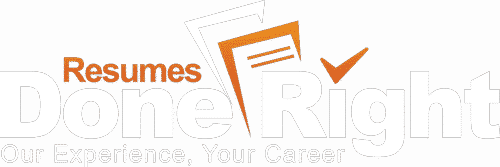How to Answer Behavioural Interview Questions
What is the STAR Interview Technique?
You may have read our previous blog about how to prepare for an interview In this article, we explore a tried and tested technique to help you through the interview and, hopefully, land the job!
So you got a call back and now you’re sitting in the interview chair. The interviewer has just asked you to provide an example of your previous work. What do you do? How do you come up with a meaningful example that resonates with the interviewer to show you are the right candidate for the position?
Past performance is an indicator of future performance. Interviewers know this, which is why they ask for examples of your previous work. Previous examples enable an interviewer to draw a comparison as to how you would suit the role they advertised.
One way is to use the STAR technique. Employers use situational interview questions and the STAR technique to analyse your skills, abilities and qualities in an interview. You can use the STAR technique to demonstrate you are the right fit for the job.
A Breakdown of the STAR Interview Technique.
Situation
This is the beginning of your story. Think of a situation that relates to the question asked. It doesn’t have to be the same type of situation; it doesn’t even have to be work related. Choose an example where you were able to apply your skills to reach an outcome. Remember to include the “5 Ws” in your response – Who, What, Where, When and Why. This will help you paint a picture for the interviewer to understand the situation and how it relates to their question.
Task
Once you’ve outlined the situation, you need to describe the tasks you performed to reach the outcome. This will demonstrate to the interviewer you have a depth of understanding of what needed to be done to resolve the situation. Keep your description concise, while including enough information to showcase your skills to the interviewer. Be sure to highlight any specific challenges you faced.
Action
By now, the interviewer will understand the situation and the path you chose to reach the outcome. But what did you actually do? This is where you describe the steps you took to apply your skills to reach a resolution. Remember to focus on qualities an employer would find desirable i.e. leadership, initiative, problem solving, teamwork, etc.
Result
This is where you tell the end of your story. At this point, you describe the outcome of the situation and the results of your actions. Even if it is was not a successful outcome, you can still describe the part you played. You can also outline what you learned from the situation and how you would apply those lessons in the future.
What Do I Do Next?
Now that you understand the STAR technique, it’s time to practice, practice, practice. Think about some of the questions you’ve been asked in similar interviews in the past, or contact someone who might know, and create some practice answers.
Role play with a family member, friend or colleague (situation dependant). If you’re feeling confident, get them to change up a question, or throw in a curveball to test your ability to think on the fly. It’s only through practice that the STAR technique will become second nature to improve the quality of your responses. The end game is to be able to think this way automatically.
Practice makes perfect and the effort will be worthwhile.
Preparing For an Interview Using the STAR Method
- Have some examples at the ready that demonstrate your skills in relation to the job’s selection criteria. If the advertisement did not contain selection criteria, have a good read through the job description to determine which skills the employer is seeking.
- Provide examples from various aspects of your life or career. This will demonstrate you can apply your skills to a number of situations.
- Choose examples that reflect positively on you (even if the overall outcome was not successful).
- Make sure your examples have a beginning, middle and end. You need to be able to demonstrate the problem at hand, what you did to address it and the outcome.
- Don’t generalise in your responses. Provide examples where you can give a detailed account of a specific situation and your contribution to the outcome.
- Be honest about the situation and your contribution. The interviewer will soon know if you are fabricating an example and you will lose credibility.
Common STAR Principle Questions
Example Question 1
Please outline a situation where you were able to apply your interpersonal skills to resolve a conflict.
Example Question 2
Please provide an example of where you used your time management skills to prioritise work and reach a successful outcome.
Example Question 3
Please describe a situation where you used your communication skills to provide information to a customer about a product/service.
Example Question 4
Please outline a situation where you used your problem solving skills to address a situation you encountered in the workplace.
Example Question 5
Please tell us about a situation where you used your teamwork skills to reach a common goal.
Common Mistakes When Answering STAR Method Questions
Not Being Honest
You may find you are presented with a question about a situation you have never encountered before. Don’t panic! Be honest with the interviewer, tell them you’ve never encountered such a situation. This is a great opportunity to talk about what you would do in the situation. This will demonstrate your analytical skills and your ability to think on your feet.
Not Being Prepared
Don’t ever go into an interview unprepared! Before you even walk in the door and sit in that interview chair, you should already have some prepared responses and examples based on your review of the job description and job advertisement.
Preparing your answers and examples in advance will ensure you are far less nervous and primed to answer whatever question is fired at you. Your answers will also be more focussed and relevant to the questions asked. The worst thing you can do in an interview is “Um” and “Ah” your way through an answer because you were unprepared.
Being Overprepared
It is possible to be too prepared for an interview. Seems ridiculous, right? Picture this: You rehearsed your answers all night before the interview. The interviewer asks you a question and you immediately regurgitate your prepared response word-for-word as you practised it. This could seem robotic and put the interviewer off. You’ll get a much better reaction if you keep your answer light and conversational. Know your example well but make it seem like this is the first time you’ve told the story.
Not Answering the Question
This is a trap many people fall into. People often don’t know how to answer a question so they “waffle on” with a story that has little or no relevance to the question asked. This can demonstrate to the interviewer you are unprepared and disorganised. Make sure you understand the question and provide a relevant answer. Ask the interviewer for clarification, if need be. They will appreciate your ability to speak up and your desire to fully understand a situation before you take action.
If you need help to prepare for an interview, get in touch with Resumes Done Right to enquire about our interview coaching services.

